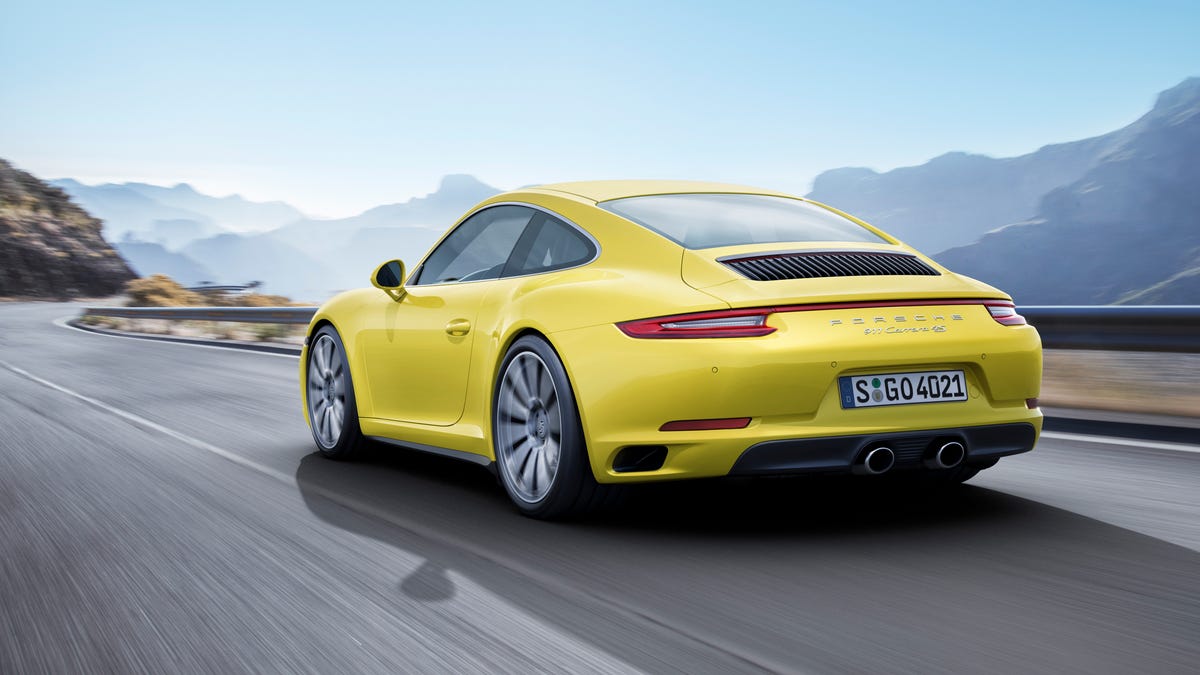Porsche issues trio of recalls for collision-related safety issues
The last thing you want is a windshield that pops out inadvertently.

When a collision occurs, it's incredibly important that all necessary parts perform as functioned. Porsche's latest recalls address issues to that end.
The three recalls below cover various safety-related issues that only make themselves known in a collision. One affects a large-ish number of cars, while the other two are on the small side. But size doesn't matter when it comes to maximizing safety.
Recall the first: Windshields that pop out
All vehicles in this recall are some form of convertible, if you count the Targa as a convertible.
Porsche's first recall covers just 21 vehicles from the 2017 model year. Given Porsche's wide variety of trims based off single models, however, these 21 vehicles exist across nine different model lines.
The full lineup of affected vehicles includes: 911 Carrera Cabriolet, 911 Carrera 4 Cabriolet, 911 Carrera 4S Cabriolet, 911 Carrera S Cabriolet, 911 Targa S, 911 Targa 4S, 911 Turbo Cabriolet, 718 Boxster and 718 Boxster S.
The recall involves the windshield. Improper bonding techniques may result in a windshield that's not correctly affixed to the body. In the event of a collision, the windshield may detach, which is, you know, not ideal and places it in violation of federal safety standards.
Fixing the issue is relatively straightforward. Dealers will take the recalled vehicles and reaffix the windshield to the body using the proper bonding technique. The recall schedule has yet to be determined.
Recall the second: Airbags that may not deploy
This isn't Monopoly. Errors within the automotive industry rarely work out in the user's favor.
Porsche's second recall is also small, covering 120 vehicles from the 2016 and 2017 model year. But like the last one, those 120 vehicles are spread across multiple model lines.
The full 2017 recall lineup includes: 911 Carrera, 911 Carrera Cabriolet, 911 Carrera 4, 911 Carrera 4S, 911 Carrera 4S Cabriolet, 911 Carrera S, 911 Carrera S Cabriolet, 911 Targa 4, 911 Targa 4S, 911 Turbo S, 911 Turbo S Cabriolet, 718 Boxster, 718 Boxster S, 718 Cayman and 718 Cayman S. The 2016 911 GT3 RS and 2016 911R are included in this recall, too.
This recall involves front passenger airbags from its supplier, Autoliv. A manufacturing error might prevent its airbag inflators from working properly. If that happens, a collision may not result in airbag deployment, which increases the chance of injury and runs afoul of federal safety standards.
After receiving the correct replacement parts from Autoliv, Porsche dealers will remedy the issue by swapping out the faulty parts on the affected vehicles.
Recall the third: Airbag sensors that may not work
In the meantime, force your passengers to ride in the back, like you're a chauffeur.
Porsche's third recall doesn't deal with sports cars at all. Instead, it covers 17,871 examples of the 2015-2016 Macan S and Macan Turbo crossover, along with the 2017 Macan GTS.
The issue here is with the passenger detection sensor. This is the part that determines whether or not a passenger seat is occupied, activating or deactivating the front passenger airbag as necessary. This sensor may fail, causing it to deactivate the airbag, even when someone is sitting there.
If the car gets into a collision while this sensor is malfunctioning, the airbag may not deploy, which increases the chance of injury and -- you guessed it -- fails to conform to a federal safety standard.
In this case, Porsche will replace both the sensor mat and the seat cushion on all affected vehicles. Like the previous two recalls, there's no set schedule for replacing these parts.

